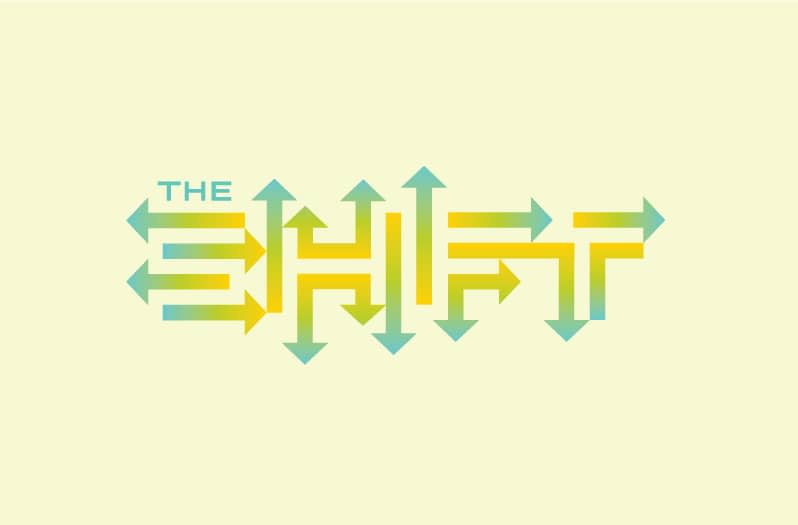Over the decades, the technology that connects us to the Internet has changed. When I was a kid, my family had a second landline so we could always have a free line to dial into the Internet. Right now, I am connected to the Internet while sitting outside my house writing this very sentence. That’s not to mention the always-connected handheld devices we keep in our pockets. As I write this, I am streaming some music and checking in on the Sparkbox Slack. The advances in technology have made interconnectivity vital to our way of life in the twenty-first century. With all the technological advancements, the Web is still a world-changing medium of communication.
Weapons of Mass Communication
We recently started a monthly design discussion group at Sparkbox to help educate and exercise design practices within the company. At the beginning of this month, I gave an overview on typography and many of the origins of typographic language. This led to a great discussion on the global impacts of Gutenberg’s moveable type system.
Communication is the great enabler of humanity.
When more and more people are able to communicate, we move with amazing speed and resolve. With the onset of the moveable-type printing press, words were able to be put to paper faster than ever before. This decreased the cost and effort of putting words in front of people, resulting in increased literacy and the spread of ideas.
Compare this with the Web today. By the time the World Wide Web was invented, text had been on screens for decades. Even the Internet had existed for some time. The Web made information easily accessible through URLs and the system to interlink between pages—modern-day moveable type. And like Gutenberg’s press, faster communication came with increased education and spread of ideas. How we interact with the world was, once again, revolutionized. Industries were created out of the existence of the Web. Eventually, regimes were toppled by an empowered citizenry armed with instant and vast information.
Medium of Mediums
With the Web, we can read an article, listen to a podcast, and watch a current event. At first, the Web was all about textual data, but as technology and culture has been morphed by the Web, it has gone beyond a text medium and is now a medium of infinite sources. It is built to be expanded upon, and that is exactly what has been done over the years. Through the Web, we stream live events to whoever is watching, and we post to websites for others to find in the future.
What is beautiful about the Web is that it allows anyone to create and post for the world to see. It is a medium for artists, writers, filmographers, programmers, foodies…for the confused, the misunderstood, the oppressed, the hated, the ignored. It’s a corner of the global conversation upon which folks can make their mark and call their own.
Information Overload
So much is built around making the Web faster, stronger, better. When I first started downloading music, it would take ten to fifteen minutes. Today, music starts playing instantly on my phone whenever I wish. With our modern technology, we no longer have to intentionally seek out information; instead, we are sent unprompted notifications of new information. When I was a kid, I’d have to log on—with dial-up—and check for email each time I wanted to see if I got a new message. Now, my phone tells me I have mail so often that I have to shut off notifications to stay sane.
We can become so inundated with information that we suffer from anxiety and distress. I’ve had to discipline myself and even put in place certain restrictive measures to avoid information overload. I take advantage of customizing notification settings in the applications I rely on each day so I am not overwhelmed by actions that don’t often need my immediate attention. I utilize mutes and lists in Twitter to filter out information that might waste time occupying my mind. I try to save things until later so I am not distracted by them in that moment.
Then there is the stuff that is gone. For all the ways the Web has revolutionized global communication, we lose the early days of the Web each day. We can gaze upon the original prints Johannes Gutenberg printed, but early websites have faded from existence. We have become more and more aware of this fleeting existence. Projects like Archive.org help capture websites in their time and place. With its Wayback Machine, we can see the Apple website the day the iPod was released or even take a look at an early version of the Sparkbox website. Despite all the work of Archive.org, so much more needs to be done to preserve the Web of the past and the present for future generations. So much content and history is locked up in Web communities that eventually shut down and fade away.
The Great Dichotomy
The Web enhances our lives by allowing us to communicate and learn like never before in the history of humanity. For the same reason, the Web can also be a detriment. Already, we see the Web used for the best to benefit and build up society, but we also see the Web at its worst, used to damage lives and spread hatred. In the infancy of this cultural shift we are experiencing, we will see the pendulum swing often. With all the good and the bad, the web of global communication cannot be understated as the most valuable characteristic of the Web.

